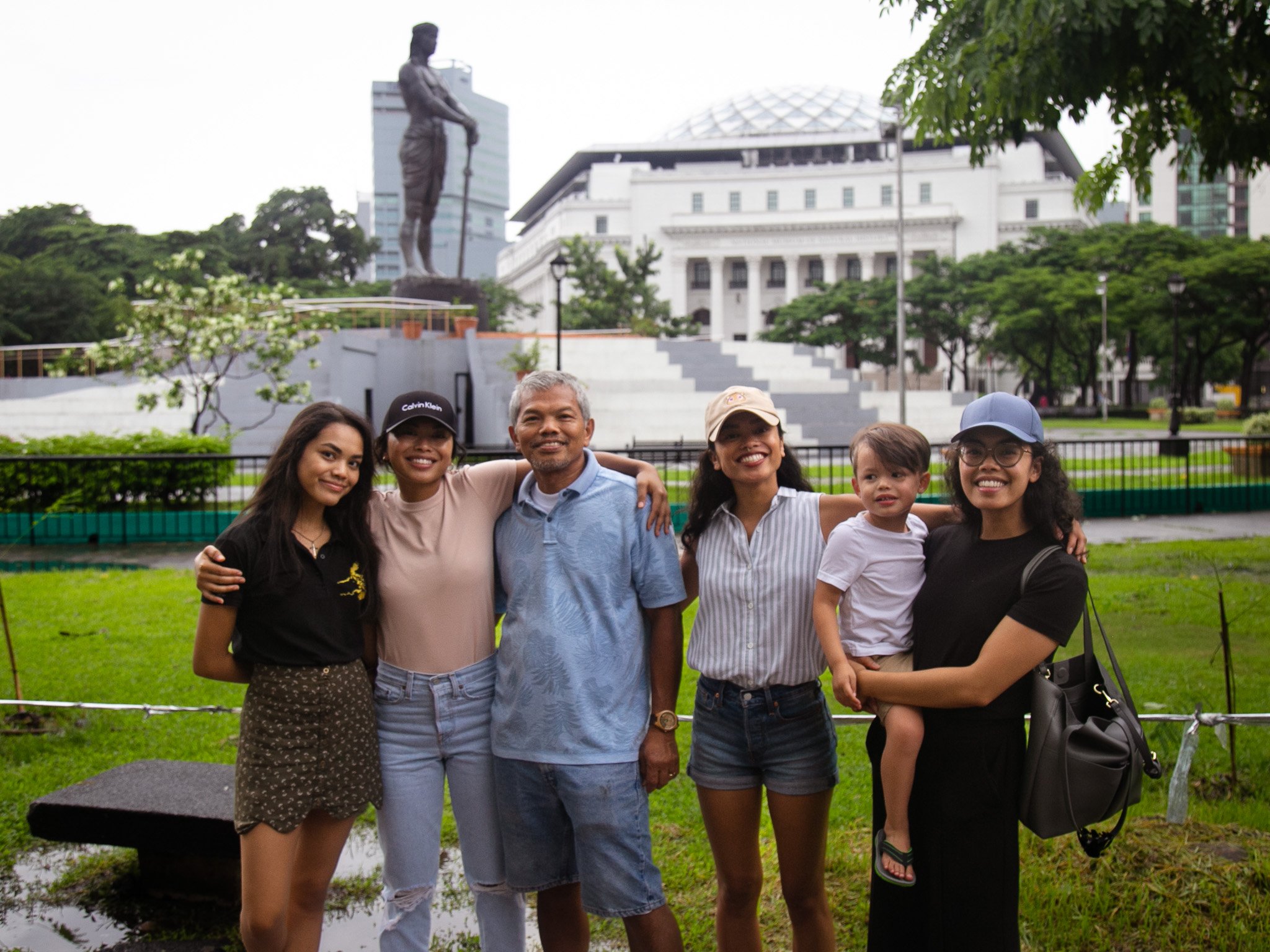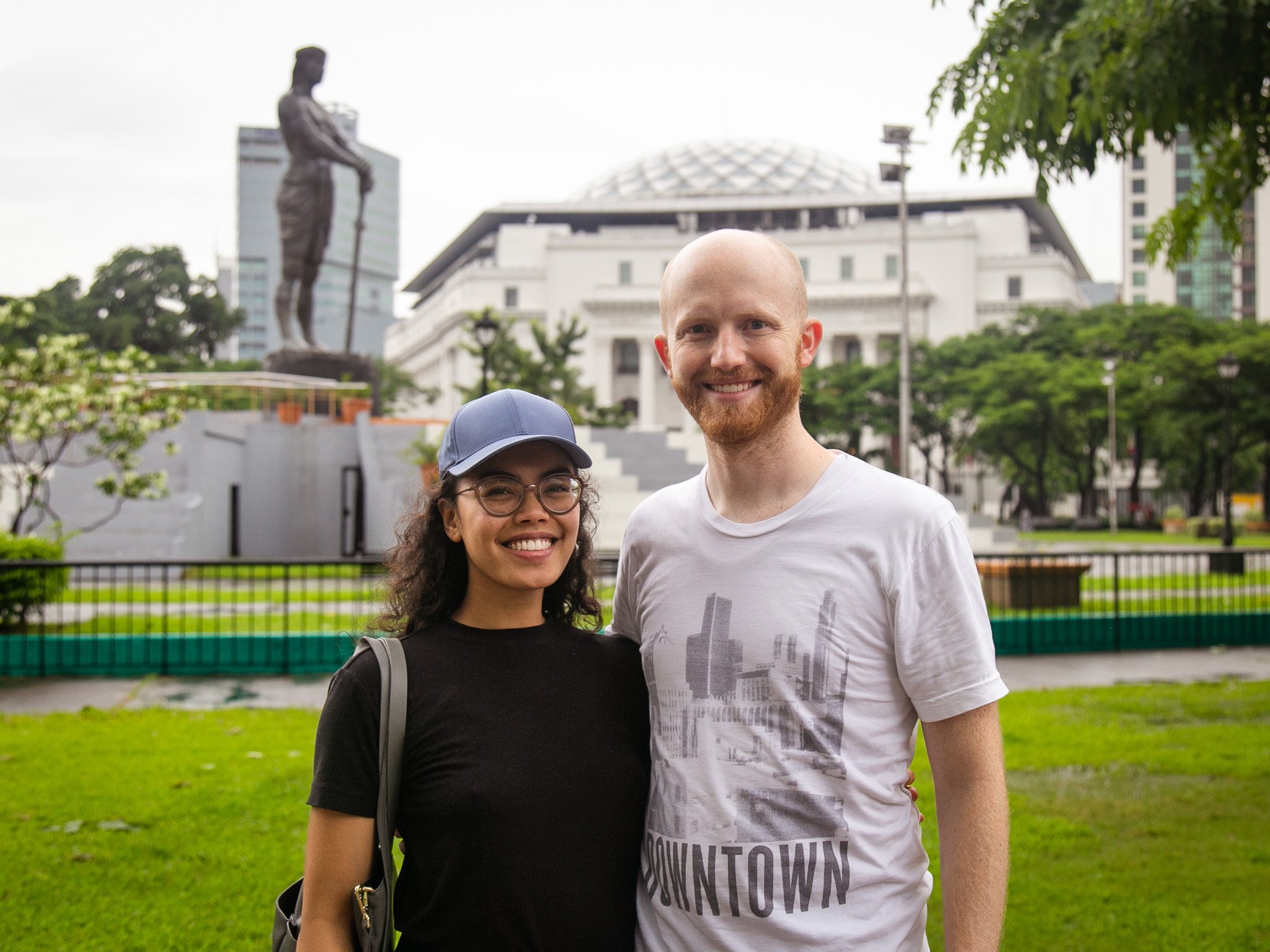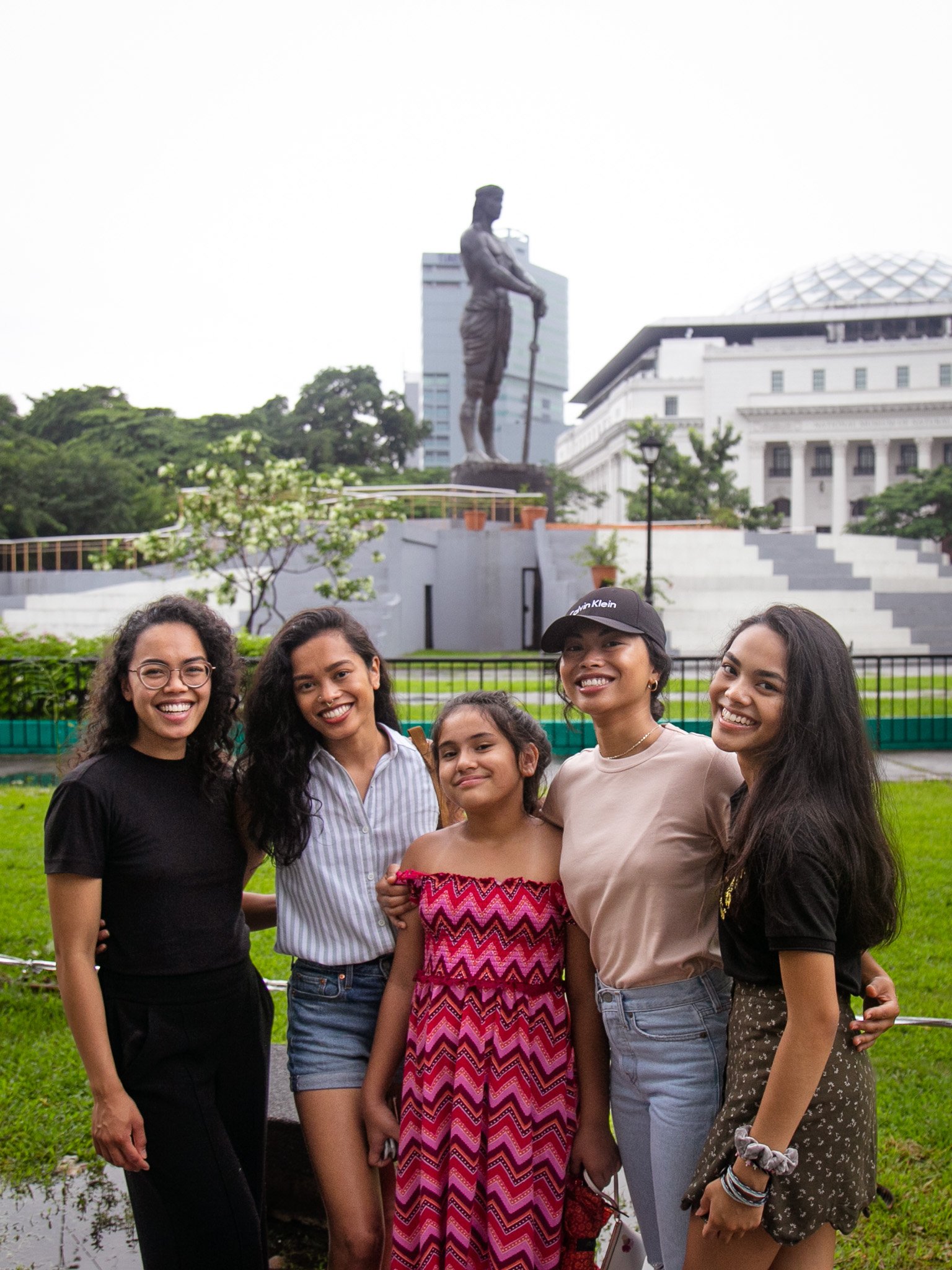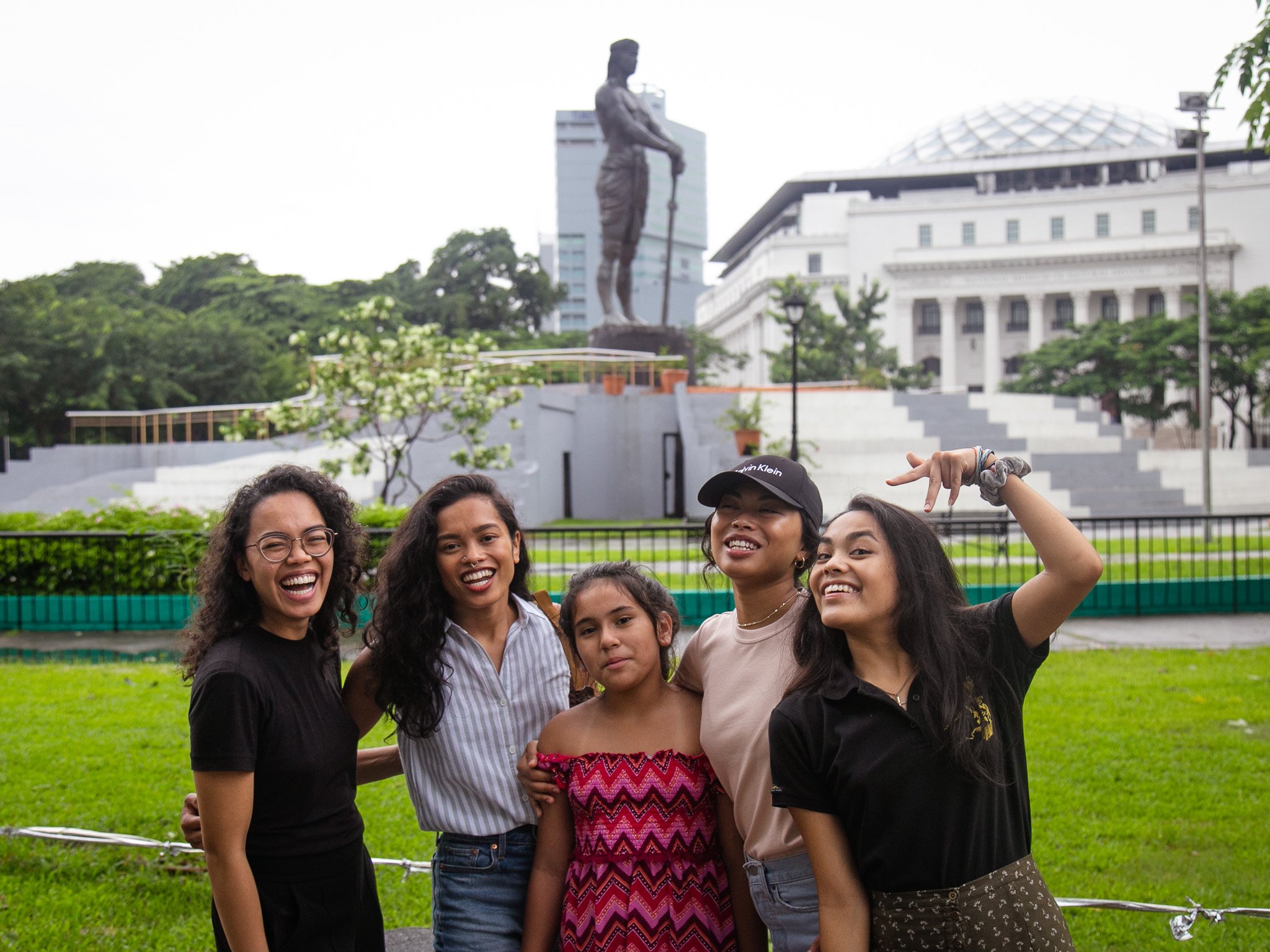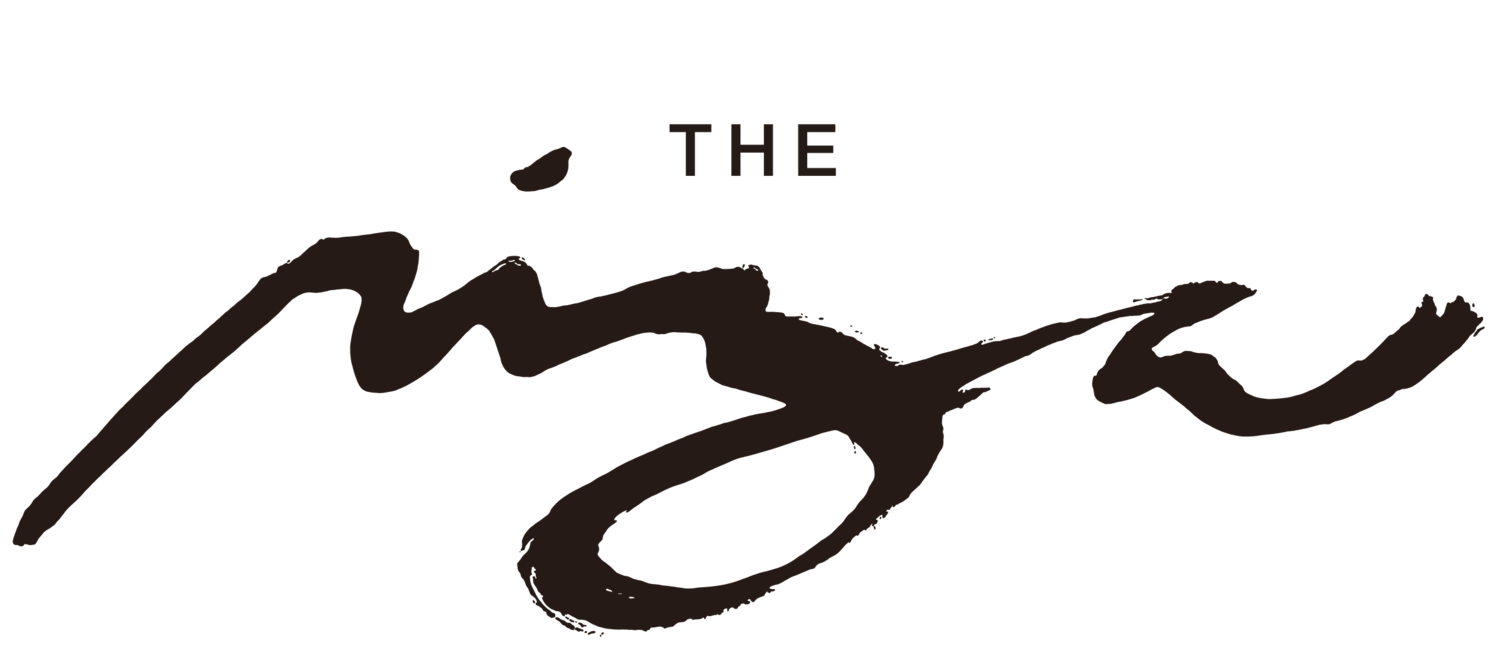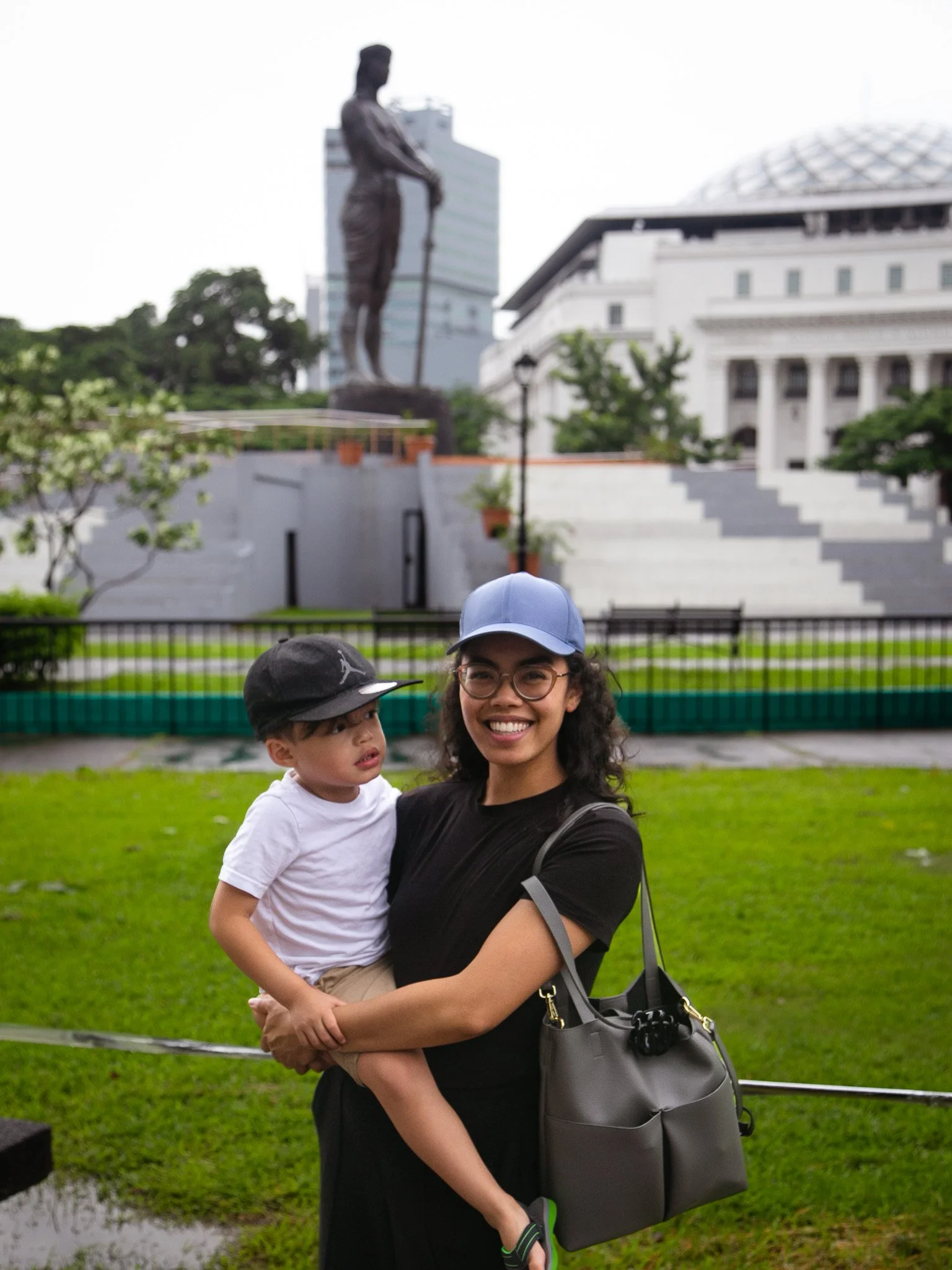Immigrants, Ancestors, and Bullies
Being able to bring my kid and husband to the Philippines was so meaningful. A trip to the motherland with my family helps fill the gaps of my identity as a Filipina-American immigrant.
I rarely talk to my parents on the phone. I swear it’s an immigrant parent child thing. Anyone else? So on this day, Tatay returned a missed call that I didn’t mean to make. I was hesitant and a bit anxious to talk to him. But I answered his call and surprisingly, something meaningful came from it. I have very few honest and heartfelt connections with my parents, so it was interesting that we got on the topic of bullying. Tatay shared his stories of being bullied from childhood to teenage years. He was small and therefore an easy target. Whether it was working a job and or bringing buckets of water back to their Manila apartment from the well, a bigger kid or two was there, waiting to ruin his efforts to help provide for his family. If he was lucky, his Ate Aida was there to help him out of trouble. Tatay shared these stories with me followed by, what to my Americanized ears seemed to be a dig at me for not having been more open. He said, “You girls, I don’t know why you never talked to us. So we don’t know if you were ever bullied.” So much to unpack in that sentence alone, but to simply put it, immigrant parent/child relationship. Offft.
I laughed to Tatay’s seeming attack, but with my Filipino-immigrant-father-trying-to-connect-with-his-daughter ears turned on I responded, “I never told you I was bullied because it wasn’t until I was this age that I finally understood that I was bullied as a kid.” Bullying to me, I told him, was physical abuse like what was depicted in American highschool movies and TV shows. Being shoved into lockers. Swirlies. Lunch money being taken.That never happened to me. I didn’t know that constant verbal abuse was bullying. I have many stories, many I wasn’t ready to share with him because I’m just opening up about those to Jordan. For whatever reason it was easier to recount to him stories of racism and prejudice. I told him of the kids who had deep prejudice towards me as a Latter-day Saint and found any reason to make fun of my faith. The American Evangelical South. Offft. I told him about the day after September eleventh. Lastly, I told him about the day I was called a savage. By the way, it was by the same kid who called me a devil worshiper for being Mormon and who blamed me for 9/11. Yes, it took me this long to realize he was a bully. This kid came out of world history class, headed straight for me, and he threw the hateful words at me, “You and your people are savages for what you did to Magellen!” I was confused. At the time, I didn’t know this history. He opened up his textbook and showed me an illustration of the Battle of Mactan and the paragraph where the only word that stood out to me was Philippines. I was shocked and embarrassed. I believed his retelling of the history, that indigenous Filipinos were at fault for killing an innocent Portuguese explorer sent over by Spain. He called me a savage several more times.
When I went home, I told Inay what this kid had said to me and told her the history I was taught, that indigenous Filipinos killed Magellen. Hopping she would discount it as false, she instead said with pride, “We did kill him! In fact you are the descendant of Datu Lapulapu who killed him!” My Tito joined in, “Yeah, it’s true! You come from royalty.” At that age my understanding of royalty was Princess Diana and the British Monarchy. I remember being confused by a man depicted as a warrior in a loin cloth as royalty and wondered where all our family’s money and jewels were. The image of the British monarchy. Offft. That day, Inay taught me a version of Philippine history where I saw myself and our people, not as savages, but as resistors. Resistors to bullies and defenders of our people and land.
After telling Tatay this story, he reacted with a big laugh and said, “How could this kid say that to you?! Does he not know what Americans did to the natives here?! He is a savage for what the Americans did to the Native Americans!” It’s fun to see Tatay’s social justice fierceness come out. After our conversation, I looked through the photos of when we saw Datu Lapulapu’s statue, the Sentinel of Freedom, at Rizal Park in Manila. Our rare heartfelt conversation of a time when I was bullied because of my heritage in connection to our visit from five years ago felt more meaningful now. When our family visited the Philippines, Manila was never part of our itinerary. But a miscommunication between our parents resulted in us leaving San Pablo City two days earlier than planned and we were forced to stay in Manila. We were all exhausted and honestly quite frustrated by my parents unwillingness to get international phone data. Inay, exhausted from the chaos of the accident, stayed behind at the hotel. However, Tatay was determined to make lemonade out of lemons. Seeing a shrine that honors not just a national hero of the Philippines, but our literal ancestor, was only possible because Tatay made us go out that day. And just like that serendipitous visit, an accidental butt-dail call resulted in a very meaningful conversation that brought us back to this moment of seeing our ancestor, Datu Lapulapu. A full circle moment.
